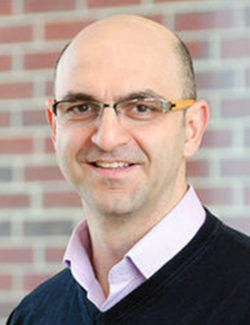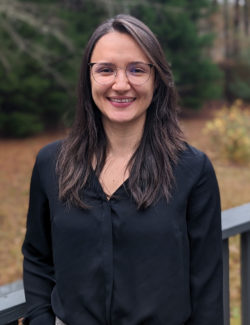Workshop Organizers

Thirimachos Bourlai
Associate Professor, School of Electrical and Computer Engineering
The University of Georgia
Thirimachos.Bourlai@uga.edu
Dr. Thirimachos Bourlai holds the position of associate professor in the School of Electrical and Computer Engineering at the University of Georgia, has a Joint Appointment with the Savanah River National Labs and concurrently serving as Adjunct Faculty at the Institute for Artificial Intelligence at UGA. Additionally, he holds adjunct faculty roles at WVU in the Lane Department of Computer Science and Engineering and the School of Medicine at the Department of Ophthalmology.
Dr. Bourlai is a distinguished figure as the founder and director of the Multi-Spectral Imagery Lab, overseeing cutting-edge research. Notably, he serves as a Series Editor for Advanced Sciences and Technologies for Security Applications, and an Associate Editor for the Elsevier Pattern Recognition Journal and the IET Electronics Letters Journal. His contributions extend to leadership roles, including being a member of the Board of Directors at the Document Security Alliance and the former VP of Education of the IEEE Biometrics Council. Dr. Bourlai is also part of the Academic Research and Innovation Expert Group of the Biometrics Institute.
With an impressive publication record, including five books on biometrics and identity management, he has authored numerous conference papers, book chapters, and magazine articles. For more information, visit his profile background and publications list.

Lorena N. Lacerda
Assistant Professor, Integrative Precision Agriculture
The University of Georgia
llacerda@uga.edu
Dr. Lacerda is currently an assistant professor in Integrative Precision Agriculture at the University of Georgia. She obtained her undergraduate degree in Agronomy in 2015 from the Federal University of Lavras in Brazil. Lacerda received her Ph.D. in Crop and Soil Sciences from the University of Georgia and held a postdoctoral associate position at the University of Minnesota Precision Agriculture Center before returning to the University of Georgia as a faculty member.
Her background in agronomy and practical engineering training represents well the highly interdisciplinary nature of her work. She has focused on integrating proximal, airborne, and satellite multispectral and thermal remote sensing, ground sensors, and machine learning models to improve crop monitoring, management, and production, and to further understand the dynamics among soil, plant, and environment.
More recently, Dr. Lacerda has started working with hyperspectral imaging to explore the potential to perform early detection of abiotic stresses in row crops for improved in-season crop management. Lacerda has made contributions in the areas of precision agriculture, crop production, and different remote sensing applications.